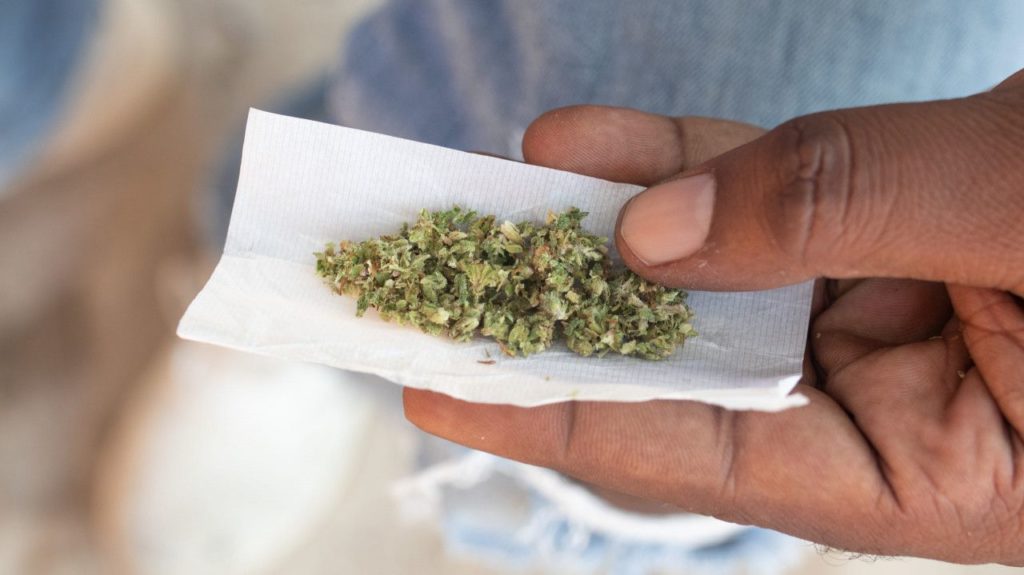
By Paul Mulshine | Star-Ledger Columnist
When the effort to legalize marijuana in New Jersey passed the state Senate last week it did so without Republican votes.
Aren’t Republicans supposed to believe in free markets?
I fear the Grand Old Party is a bit confused on this issue.
The confusion traces back to the Reagan administration. Back then, the government made great efforts to crack down on the black market in marijuana.
But at the same time the administration was attacking the socialist governments of places like Cuba and Nicaragua for their insistence on shutting down their own black markets, often in necessities such as food and clothing. Consider this passage from a 1985 New York Times article:
“Even as the guerrilla war on Nicaragua’s borders intensifies, the Nicaraguan Government is aiming its sights at what it views as an equally dangerous enemy: the peddlers and small shopkeepers it has classified as ‘speculators, profiteers and hoarders.’’’
Now ask yourself how that differs from the current practice of clamping down on the speculators, profiteers and hoarders in the marijuana trade.
All that ends on New Year’s Day. That’s when the constitutional amendment to legalize marijuana takes effect.
But what happens then? That was a key question that remained unanswered as the Senate passed by a 23-17 margin a legalization bill passed earlier that day by the Assembly.
In the debate before the vote, state Sen. Nia Gill gave the best explanation of the problem. The Democrat from Montclair, who is a lawyer in real life, said the bill will cause confusion among both the police and the potheads.
“It is a misrepresentation to say people on January 2 can purchase marijuana legally,” said Gill. “They cannot.”
As Gill said, the bill does indeed legalize “possessing, purchasing, or transporting … one ounce or less of usable cannabis.”
But you can’t legally purchase that pot until the state-regulated dispensaries open up.
“Under this bill, that one ounce of marijuana cannot be legally purchased until we designate those stores where you can purchase this,” said Gill. “That could be well into 18 month.”
It could indeed. The Cannabis Regulatory Commission set up under the bill could take six months just to write the regulations before those merchants can even apply for licenses.
Then a network of state-sanctioned growers must be set up to grow the weed – sort of like the way the commies used to regulate corn farmers.
In the meantime, who’s going to sort this all out? Gill said that task will fall to the judiciary.
“I’m gonna vote for it so we can get some clarity,” Gill said, adding
“The Legislature’s not gonna do it but hopefully the courts will.”
This is where a good, old-fashioned free-market Republican could have contributed some insight. When he served in the state Assembly, Mike Carroll of Morris County offered a simple proposal for marijuana legalization: Strike the criminal code of any reference to marijuana. Treat it like tomatoes or any other crop.
That’s not the bill that passed after a couple years of intense debate. That bill features 240 pages of regulation.
The prime sponsor, state Sen. Nick Scutari of Union County, couldn’t have shepherded it through the Legislature without adding vast amounts of verbiage.
Scutari, who is also a lawyer, said he would expedite the approval of dispensaries and he called on police to leave potheads alone in the interim.
When I discussed this with Amol Sinha, the executive director of the state chapter of the ACLU, he agreed that the courts will have to sort things out for now.
But Sinha said the simplest approach would be for the regulatory commission to grant licenses to those already selling pot on what he termed “the legacy market.”
That has a nice ring to it compared to “the black market.”
“I think that people that are in the legacy market, as we call it, should be able to get a license in the regulated market,” Sinha said. “We need to create incentives and opportunities for people to enter the regulated market, and it shouldn’t be restricted to people with millions of dollars.”
People are already doing that, said one marketer who’s got quite a legacy. That’s Ed “NJ Weedman” Forchion.
Just after the bill passed, I called the Weedman at the coffeehouse on State Street in Trenton where he has been selling weed openly. He’s no longer the only member of the legacy market to go public, he said. Another outlet just opened on Broad Street and there are plenty more ready to take advantage of legalization, said Forchion.
“These places are popping up everywhere and they’re gonna sell weed on the First,” he said. “People are ingenious.”
Yes, they are.
As for politicians, not so much.
H/T: Article originally appeared on Nj.com



